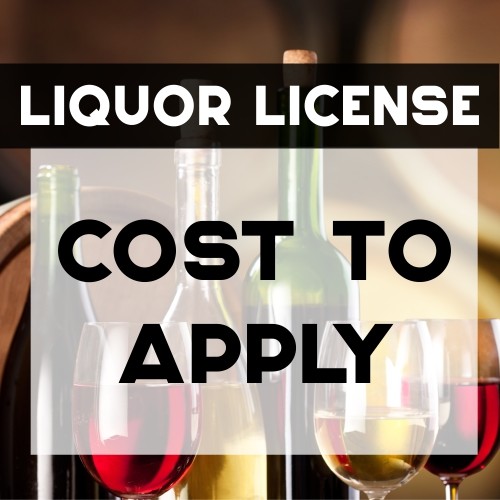Starting a business in the hospitality industry involves careful financial planning, especially when it comes to obtaining a liquor license. Understanding the implications of liquor license costs and budgeting effectively can significantly impact your business’s financial health and success.
Table of Contents
The Importance of Anticipating License Costs
License costs represent a substantial financial investment for any establishment serving alcohol. It’s crucial to anticipate these costs early in your business planning to avoid unexpected financial strain and ensure compliance with regulatory requirements.
Factors Influencing Liquor License Costs
Several factors influence the cost of obtaining a liquor license, including the type of license, location of your business, and the specific regulations imposed by local authorities. Each region may have different fee structures and requirements, making it essential to research and understand the specific costs applicable to your business.
Types of Liquor Licenses and Their Costs
Different types of liquor licenses cater to various business needs, such as on-premises consumption, off-sales, or special event licenses. Each type carries its own set of costs and requirements, which you must consider when planning your financial strategy.
Budgeting Wisely: Allocating Funds for License Costs
Budgeting for license costs involves allocating funds not only for the initial application and issuance fees but also for ongoing renewal fees and compliance expenses. By including these costs in your financial projections, you can ensure that your business remains financially sustainable and compliant with legal requirements.
Strategies for Managing Liquor License Costs
Managing license costs effectively requires proactive financial management and strategic planning. Consider negotiating with suppliers, exploring financing options, or seeking professional advice to optimise your budget and minimise unnecessary expenses.
Regulatory Compliance and Financial Viability
Ensuring regulatory compliance is paramount in the hospitality industry, particularly concerning alcohol licensing. Failing to budget for and obtain the necessary licenses can lead to hefty fines, legal repercussions, and reputational damage. By integrating compliance costs into your financial strategy, you safeguard your business’s long-term viability and operational continuity.
Impact of Liquor License Costs on Profitability
License costs directly impact your business’s profitability by influencing pricing strategies, profit margins, and overall financial performance. Understanding these costs allows you to make informed decisions that maximise revenue potential while maintaining compliance and customer satisfaction.
Leveraging Professional Guidance for Financial Planning
Securing a liquor license can be a complex and time-consuming process, often requiring detailed knowledge of local regulations and financial implications. Leveraging the expertise of a financial advisor or consultant who specialises in the hospitality industry can provide invaluable assistance. These professionals can help you navigate the licensing process, identify potential cost-saving opportunities, and ensure that your financial strategy is robust and comprehensive. By seeking expert guidance, you can streamline your planning process and mitigate potential financial pitfalls.
Preparing for Unexpected Costs
While planning for license costs, it is essential to anticipate and prepare for unexpected expenses that may arise. These can include additional fees for legal consultations, zoning permits, or compliance with changing regulations. Establishing a contingency fund within your budget can provide a financial cushion to address these unforeseen costs without jeopardising your overall financial stability. By being proactive and setting aside resources for contingencies, you can safeguard your business against unexpected financial disruptions and maintain smooth operations.
Exploring Cost-Saving Opportunities
While liquor license costs are a necessary expense, exploring cost-saving opportunities can help manage your budget more effectively. Investigate whether any grants, subsidies, or financial incentives are available for businesses in your industry. Additionally, consider joining industry associations or networks that offer resources and support for managing licensing costs and compliance requirements. Taking advantage of these opportunities can provide valuable financial relief and support for your business.
Long-Term Financial Planning and Growth
Incorporating license costs into your long-term financial planning is crucial for sustaining business growth and achieving financial stability. As your business expands or evolves, additional licenses or modifications to existing ones may be required, each with associated costs. Regularly reviewing and updating your financial strategy to account for these changes ensures that your business remains compliant and financially healthy. By maintaining a forward-thinking approach and continuously evaluating your financial plan, you position your business for long-term success and resilience in the dynamic hospitality industry.
Conclusion:
In conclusion, planning your financial strategy around anticipating liquor license costs is crucial for the success of your hospitality business. By understanding the factors influencing these costs, budgeting wisely, and prioritising regulatory compliance, you position your business for sustainable growth and profitability. Strategic financial planning not only mitigates financial risks but also enhances operational efficiency and resilience in a competitive market environment.
By adopting a proactive approach to managing license costs and integrating them into your broader financial strategy, you demonstrate fiscal responsibility and commitment to long-term business success. Embrace the opportunity to leverage professional advice, industry insights, and financial tools to navigate the complexities of liquor licensing effectively.









